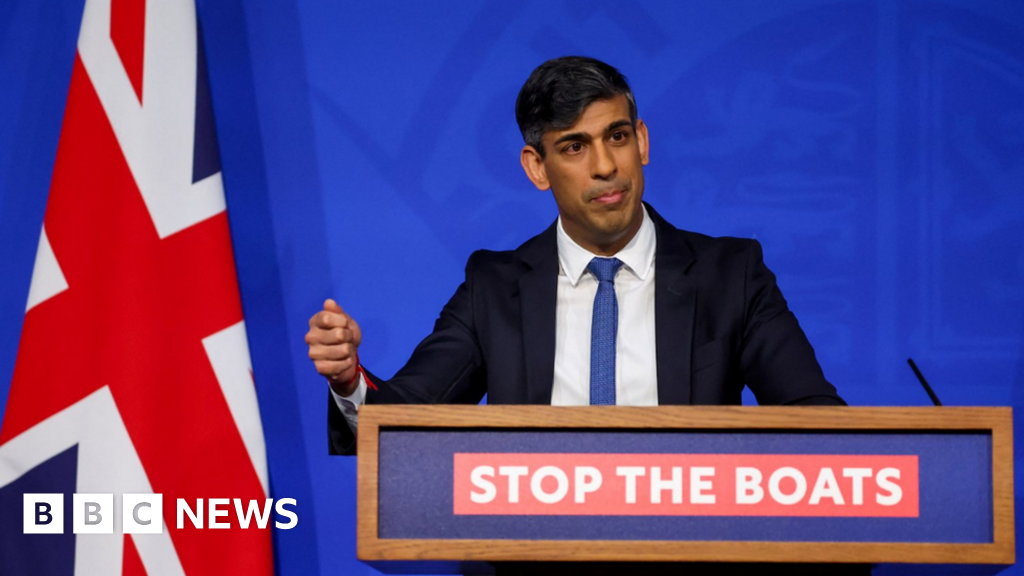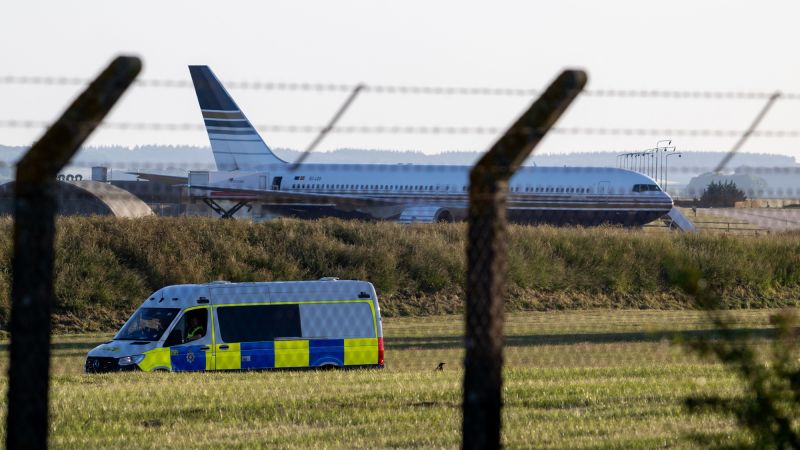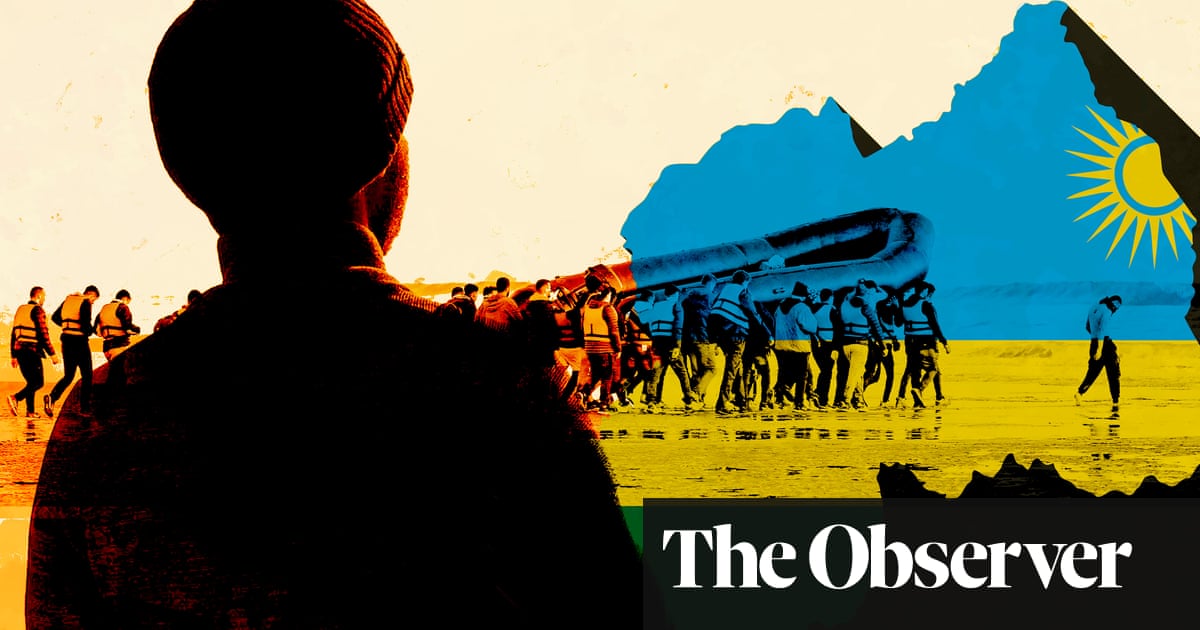After several weeks of deadlock, this Tuesday the British Parliament approved the bill to allow asylum seekers who enter the UK illegally to begin deportation flights to Rwanda.
Members of the House of Lords (upper house) agreed not to table any more amendments and voted in favour of the bill, recognizing Rwanda as a safe destination, after months of debate and criticism from the opposition.
The plan, announced two years ago by Conservative Prime Minister Rishi Sunak, could come into force after ratification by King Charles III, said British public television BBC.

The new legislation also allows the government to ignore injunctions from the European Court of Human Rights.
"Those who arrive illegally cannot stay"
Rishi Sunak hopes the plan will deter migrants from entering the country illegally, where 6,265 have already arrived this year after crossing the English Channel.
The British Prime Minister described the passing of the legislation as a "fundamental change in the global migration equation".
The so-called Rwanda Law, Sunak argued, "aims to deter vulnerable migrants from making dangerous crossings and to disrupt the business model of the criminal groups that exploit them".
"The passing of this legislation will allow us to do that and make it very clear that anyone who comes here illegally cannot stay," he said.
"No foreign court will stop us," Sunak declared, promising that the deportations to Rwanda will take place "nomatter what".
Home Secretary James Cleverly stressed in a video posted on social media that the legislation will "stop people abusing the law, using false human rights claims to block expulsions, and makes it clear that the British Parliament is sovereign".
Criticism
The bill, backed by a new treaty between London and Kigali under which London will pay substantial sums to Rwanda in exchange for taking in migrants, was intended to respond to the British High Court, which ruled in November that the plan was unlawful "since there are substantial grounds for believing that asylum seekers would face a real risk of ill-treatment due to refoulement from their country of origin if they were taken to Rwanda".
Refoulement is the practice in which asylum seekers or refugees are forcibly returned to a place where they would face persecution or danger, against important principles of international human rights law.
Rwanda's asylum system and failure to comply with non-refoulement agreements should, according to the judges, prevent the British government from considering the country safe.
According to CNN, the MEPs also point out that as recently as 2021, the British government criticized Rwanda for "extrajudicial killings, deaths in custody, enforced disappearances and torture".

The House of Lords had also delayed approval of the proposal, demanding that an independent body confirm Rwanda's status as a safe country.
Several humanitarian groups and organizations have criticized this legislation as violating international law.

UN asks government to reconsider plan
The government's plan has been criticized by the Labour opposition, migrant support associations, the Anglican Church and the UN High Commissioner for Human Rights, who considered it to be "against the fundamental principles of human rights".
Volker Türk and his counterpart in charge of refugees, Filippo Grandi, called on the British government to "take concrete measures to combat irregular flows of refugees and migrants, based on international cooperation and respect for international human rights law".
According to the Council of Europe's Commissioner for Human Rights, the legislation "raises important questions about the human rights of asylum seekers and the rule of law in general".
"The British government must refrain from deporting people under the Rwanda plan and reverse the attack on the independence of the judiciary that this bill constitutes," said Michael O'Flaherty in a statement.
According to the United Nations High Commissioner for Refugees (UNHCR), this law violates the Geneva Convention on Refugees, which the United Kingdom signed in 2022. He also stressed that Rwanda's "dismal" human rights record makes the idea even worse.
Enver Solomon, executive director of the Refugee Council, a UK-based non-governmental organization, said at the time that this agreement represents "a cruel and nasty decision" and will not stop human trafficking gangs.
Rwanda is one of the most stable countries on the African continent, but President Paul Kagame, in power for 24 years, is accused of ruling in a climate of fear, repressing dissent and freedom of expression.
Last year there were 29,437 illegal migrants arriving in boats such as rubber dinghies, a reduction of 36% compared to 45,774 in 2022.
"When they take people to Rwanda, everything will be fine at first," a Rwandan granted asylum in the UK told the Observer in January, quoted by The Guardian, "but as soon as they start claiming their rights - for example, if they want to demonstrate - they're going to have big problems."

"If you complain about the Rwandan government, the security services will knock on your door," he said. "Rwanda is a very well organized and very well camouflaged dictatorship," he added.
The Rwandan government expressed its satisfaction with the vote in the British parliament on the controversial bill that allows asylum seekers who have entered the UK illegally to be deported to the African country.
"We are pleased that the bill has been adopted by the British parliament," said Rwandan government spokesman Yolande Makolo in a statement sent to Agence France Presse (AFP), adding that the authorities are "looking forward to welcoming the people resettled in Rwanda".
First flights to start soon
Sunak said on Monday that the first migrant deportation flights to Rwanda could begin in 10 to 12 weeks.
Anticipating court appeals that could take four to eight weeks, the head of government said that space to detain migrants has been increased to 2,200 spaces, 200 trained and dedicated workers to review cases, 25 courtrooms made available and 150 judges identified to assess cases.








